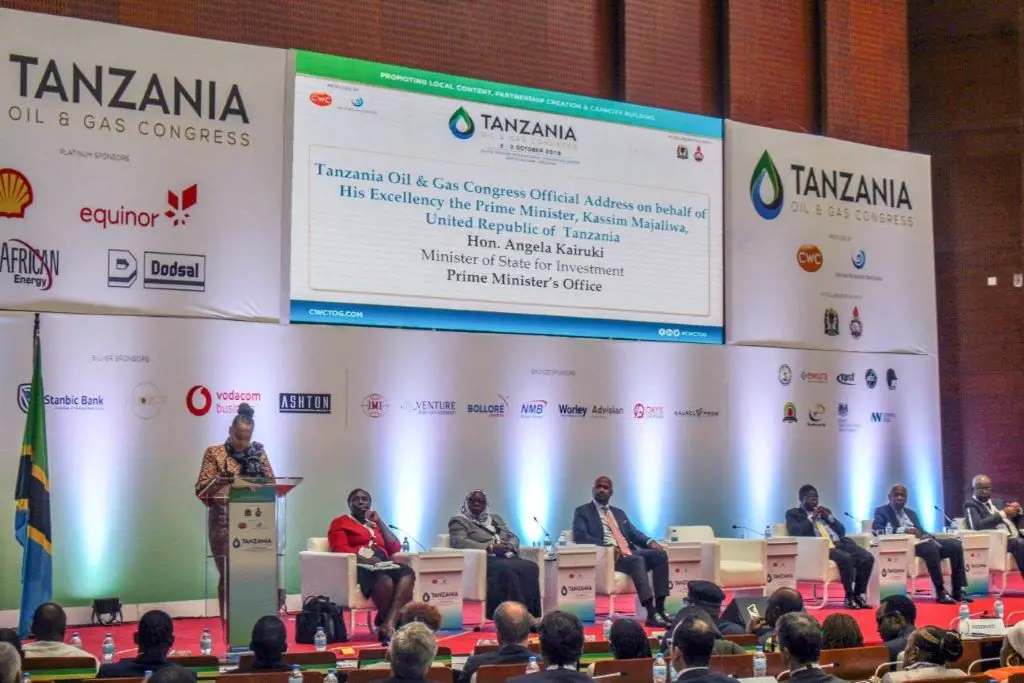- Africa’s Green Economy Summit 2026 readies pipeline of investment-ready green ventures
- East Africa banks on youth-led innovation to transform food systems sector
- The Washington Accords and Rwanda DRC Peace Deal
- Binance Junior, a crypto savings account targeting children and teens debuts in Africa
- African Union Agenda 2063 and the Conflicts Threatening “The Africa We Want”
- New HIV prevention drug is out — can ravaged African nations afford to miss it?
- From banking to supply chains, here’s how blockchain is powering lives across Africa
- Modern railways system sparks fresh drive in Tanzania’s economic ambitions
Author: Padili Mikomangwa
Padili Mikomangwa is an environmentalist based in Tanzania. . He is passionate about helping communities be aware of critical issues cutting across, environmental economics and natural resources management. He holds a bachelors degree in Geography and Environmental Studies from University of Dar es Salaam, Tanzania.
Tanzania’s natural gas prices are set to be reviewed by the Ministry of Energy as the sector undergoes a major face-lift to improve taxation and revenue collectiong. Under the leadership of President John Pombe Magufuli, Tanzania’s extractives sector has been undergoing a major overhaul to improve taxation and revenue collection within contractual agreements concomitant to the resources extracted from the country. These are measures necessary for a Tanzanian oil and gas success story. According to Tanzania Petroleum Development Corporation (TPDC), natural gas exploration has been carried out since the 1950s, but it was in 1974 that gas discovery was made…
Tanzanian government’s efforts to boost its economy have shown slight improvement over the past 22 months. According to statistics, whereas inflation has remained significantly below the medium target of 5.0 per cent and lower than the respective convergence criteria for EAC and SADC of maximum 8.0 per cent and 3 to 7 per cent over the past good six years, Bank of Tanzania (BoT), monthly economic review report reveals. With the Gross Domestic Product (GDP) at 6.6 per cent, inflation in Tanzania has been taking a rather decent fall over the past month, whereby according to the report, in August…
Tanzania is one of the fastest-growing economies in Africa, as credited by Africa Development Bank (AfDB). However, still most of its population lives in poverty. This is according to World Poverty Clock, approximately 23 million people dwell in poverty in Tanzania. Nonetheless, Tanzania has been taking poverty elimination serious over the past decade. Hence, according to the recent world bank open data, shows that, Tanzania has made concrete steps within the span of 15 years (2000 to 2015) in eliminating poverty. Moreover, Tanzania has sustained a rather significant economical stride over the past years, its economy growing on 6 to…
Across East Africa, Tanzania is strategically positioning itself as the next Sub-Saharan powerhouse, with the potential to draw billions, revitalize its economy and strive to industrialize Tanzania. The third Tanzania Oil and Gas Congress, went a step further to explore crucial aspects within the extractives industry, such as sectorial collaboration for successful oil and gas projects, updates on Tanzania’s projects and global market overviews and short-term demand and supply in Tanzania. The congress brought forth strategic players from top-notch oil and gas industry spheres, who have been leveling the playing field for the past two days. It goes without saying:…
The 3rd Oil and Gas Congress took off on 2nd October, in commercial city Dar es Salaam, drawing in vital players from the Energy arena. The 3rd congress, saw a huge number of investors and technocrats leave with key and crucial messages and new prospects in the industry, including possible missions to embark on oil-discoveries and more gas reserves in Tanzania. International delegates from top-notch companies in the world: Total, Shell, Equinor, Dodsal and representatives from neighboring countries working with Tanzania, in strategic oil and gas projects, Kenya, Zambia and Uganda, witnessed how Tanzania, is positioning its self to be…
Over the past decade, Tanzania’s oil and gas industry has demonstrated astonishing milestones in energy generation and consumption, demonstrating that an industrialized Tanzania might be a feasible ambition for East Africa’s fastest-growing economy. Since Tanzania discovered natural gas in 1974, remarkable developments have been achieved. These include saving over $ 10 billion USD, used in purchasing heavy fuel oil (HFO) and other fossil fuels (diesel and petrol in particular) for industrial production and power generation. According to the Ministry of Energy, until May 2019, the Tanzania Petroleum Development Corporation (TPDC) had collected over $ 210 million USD (from gas sales…
Tanzania plans to streamline its oil and gas industry to the world, via a robust and tailor-made, two-day congress, commencing on 2nd and 3rd of October 2019. For a third time, Tanzania will host the Oil and Gas Congress and attract delegates from over 67 nations across the globe, including sector’s crucial players: Oman, UAE, Canada, Brazil, UK, Norway, and India. Organized by Ocean Business Partners and CWC, via a partnership with other essential government parastatals and private sector in Tanzania, the 3rd Oil and Gas Congress stands to be an event not to be missed. Tanzania—has been ascending in…
The Southern African Development Community (SADC) envisions to create a region with an industrial complex driven economy, but also a excel in utilizing the telecommunication potential for a unique African development success story. The SADC region which hosts more than 345 million people, took its 2019 high-end summit and meetings to Tanzania—one of the populous, fast-growing economy and trader, member state in the region. Member states conversed on industrializing Africa on inclusive fast-growing sustainable grounds while, including intra-regional trade, but also ICT, information, transport, and meteorology. In this context, the ICT, information, transport and meteorology member states meeting brought forth…
Sports betting fans in Kenya, with an incentive to win a handsome load of cash, will have to rely on other outlets as large-players SportPesa and Betin quit the market in a rather disappointing manner. The duo’s exodus, occurred shortly after a series of engagements with the government, proved to be a failure. SportPesa commented on it’s return (to the market) conditions, citing that they would resume operations when “adequate taxation and non-hostile regulatory environment” are in place. The latter was also compelled by the July hit, where the government ordered telcos to shut down 27 sports betting pay bills…
The extractive industry in Tanzania is prone to substantial operational and management changes. Since President John Magufuli took leadership, several mining sector advancements have been made in the course of 3 years, proving billions in return at a rather intriguing socio-political cost. The latter can be reflected, in a recent development ushered by Ministry of Mining (on September 19th 2019) directing all gold produced from Biharamulo gold mine, operated by STAMIGOLD company a subsidiary of the State Mining Cooperation (STAMICO), to be sold within Tanzania, primarily in the newly established Biharamulo gold market, by December 2019. During the first quarter…







